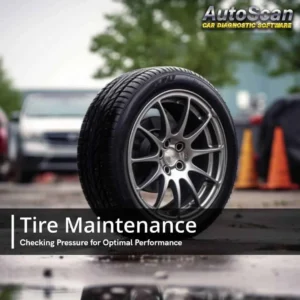🌅 Maximize Fuel Efficiency with These Easy Tips 🚗⛽
Introduction: The Quest for Better Mileage
With fluctuating fuel prices and increasing environmental concerns, achieving better fuel efficiency is a goal for many drivers. Not only does it save money, but it also minimizes your carbon footprint. The good news? Boosting your vehicle’s miles-per-gallon (MPG) doesn’t require expensive modifications or cutting-edge technology. Simple habits and regular maintenance can make a world of difference.
1. Steady as She Goes: Drive Smoothly 🐢
Rapid acceleration and sudden braking can be major fuel-wasters. By maintaining a steady speed, especially on highways, and anticipating stops, you can drastically improve fuel efficiency. Using cruise control on longer drives can also help maintain consistent speeds, reducing fuel consumption.
2. Tire Care: Inflate, Rotate, Repeat 🔄
Under-inflated tires create more resistance, making your engine work harder. Ensuring tires are inflated to the manufacturer’s recommended pressure can improve fuel efficiency by up to 3%. It’s an easy task that pays off in the long run, both for fuel savings and tire lifespan.
3. Idle Thoughts: Turn it Off 🚫
Idling consumes more fuel than you might think. If you’re going to be stationary for more than a minute or two, like waiting at a train crossing or in a long drive-thru line, it’s more fuel-efficient to turn off the engine and restart when you’re ready to move.
4. Travel Light: Minimize Extra Weight 🎒
Excess weight, especially on the roof, can reduce your vehicle’s aerodynamics and increase fuel consumption. If you have a roof rack or storage box that isn’t being used, it’s a good idea to remove it. Similarly, avoid lugging around unnecessary items in the trunk or backseat.
5. Under the Hood: Regular Maintenance 🛠️
An engine running in top condition is more fuel-efficient. Regular service checks, timely oil changes, and replacing clogged air filters can improve fuel efficiency by ensuring your engine runs smoothly and receives clean air for combustion.
Conclusion
Enhancing your car’s fuel efficiency isn’t just about the savings at the pump. It’s about making conscious decisions for a better environment and ensuring the longevity of your vehicle. By adopting these easy habits and prioritizing regular maintenance, you can drive smarter and make every gallon count. So, buckle up and enjoy the journey, knowing you’re making a difference with every mile!
FAQs:
- How can I track my fuel efficiency improvements?
Use your car’s trip meter to track miles driven and compare it to the fuel used. There are also various apps available that can help you monitor fuel efficiency over time. - Do fuel additives help in improving fuel efficiency?
Some fuel additives claim to boost fuel efficiency, but results can vary. It’s essential to research and choose products that are proven to be effective and safe for your vehicle. - How often should I replace my air filter?
Typically, air filters should be replaced every 12,000 to 15,000 miles, but always check your vehicle’s manual for specific recommendations. - Can a dirty fuel injector affect fuel efficiency?
Yes, dirty or clogged fuel injectors can reduce the engine’s efficiency, leading to increased fuel consumption. Regular maintenance and using quality fuel can help avoid this issue. - Does using air conditioning affect fuel efficiency?
Using the AC can increase fuel consumption slightly as it puts an additional load on the engine. However, at highway speeds, it’s more efficient to use the AC than to drive with the windows down, which can disrupt aerodynamics.





